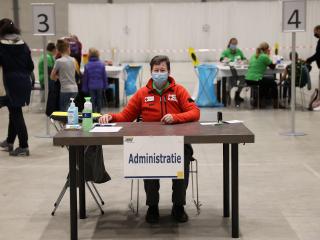2021 will be the year of large transitions
We have a new year ahead of us and 2021 will be a transitional year. What I mean is that it will be a year in which a number of transitions will have to be initiated or followed through in the Netherlands. This may sound abstract, but it isn’t. Our society already faces great challenges and the corona crisis has both intensified them and generated new ones.
By Ton Wilthagen, Professor of Labor Market Studies
A transition is a process of fundamental and irreversible change in culture, structure, or mode of operation at a systemic level, so not a matter of isolated or temporary measures.
The first crucial insight here is that every transition depends on the success of other transitions. Transitions are interdependent. And point two is that the strong tendency in the Netherlands to prioritize cost efficiency poses a risk to the success of the relevant transitions. The crisis has made it abundantly clear that we have to pay dearly for our addiction to efficiency because it undermines and erodes a society's resilience.
Energy
The Covid-19 pandemic is, of course, not the only problem that needs to be addressed. For a long time now, there has been an awareness, enshrined in climate goals, that a radical energy and climate transition is needed. That transition, which must have been achieved by 2050, has also been identified as such. At its core is the shift away from fossil fuels to fully renewable and low-carbon energy sources, such as wind and solar power. During the corona crisis, the Cabinet decided to put this policy on hold for a while, but the new Cabinet will have to face this challenge, quite literally, with new energy. So far, the Netherlands has not been an international frontrunner in this field, to put it mildly.
Other necessary changes are not always referred to as transitions, even though they are. I will discuss three of them. There is no question that health care is due for an overhaul. Even though the Dutch health care system has always been praised for its standard of care, the corona crisis has also exposed a variety of vulnerabilities. Our efficient system has too little flexibility when the going gets tough, as in the current crisis. Its shock-absorbing capacity is low and we must be grateful of the more ample facilities of our good neighbor Germany. Our capacity is insufficient, both as regards the ICs and, for example, in the care for young people with urgent mental health problems. It also required a major redesign of the infrastructure for large-scale testing and vaccination programs, which have taken a long time to set up.
Prevention
Not only health care, but also preventive health care interventions need to be prioritized. The corona crisis has taught us that, too. People with underlying health conditions, including obesity, prove to run disproportionate health risks. To this end, a national prevention agreement has been concluded, but it will have to be further fleshed out more quickly, among other things, by taking measures that are already commonplace in other countries, such as a meat and sugar tax and vaccinating children against rota virus. Again, prevention is better than cure, and penny-wise can turn out to be pound-foolish.
Another fundamental change concerns the job market. The premise should be that everyone has access to paid, meaningful, and stable work, because employment is the best route to participation in society. Even in times of economic stability before the crisis, a million people were on the dole and that number is now in danger of rising even further. Work is much more than just wages, productivity, and saving on benefits. People who work are healthier, experience more wellbeing, stay away from subversive crime, and can offer their children a better future.
Every transition depends on the success of other transitions
Therefore, there must be opportunities for everyone to use and further develop their talents, in line with the demand for work as it evolves. This is urgently required because, without a sufficient and well-qualified workforce, the energy transition will fizzle out. Even now, there is a great shortage of workers in the installation industry. Health care will continue to be understaffed unless more students opt for this sector. However, that will require a thorough improvement of the working conditions in this sector, not only including more pay, but also development and flexibility opportunities, and continued appreciation for health care professionals.
Decisiveness
The third transition has not been identified as such either, but is also crucial to the success of other transitions, namely, the need for administrative reform. In times of crisis, confidence in the government increases, but then declines. Moreover, in the Netherlands, the government has shown its ugliest face in the benefits scandal, the political fallout of which is beginning to emerge. The evaluations are not unanimously positive either about the three policy areas which have been decentralized from the central government to the municipalities: health care, youth, and employment. However, much more will be expected from the government in the coming years. It is not only about financial, but certainly also about social investments in true contact, tailor-made solutions, and trust. Without this transition, it will not be possible, for example, to get farmers and city and country people to participate in the energy and climate transition.
After the elections, the transition towards a new Cabinet will begin. It will be exciting, especially in a crisis that requires all hands of deck. Hopefully, a decisive coalition will emerge with a broad and coherent view of the fundamental advancements that our society and planet crave.
This op-ed was first published in Dutch in Brabants Dagblad.
The 'New Common'
The corona crisis has compounded major societal challenges. Tilburg University shares knowledge and insights to reshape our society. We are happy to discuss this New Common.
Date of publication: 19 January 2021



